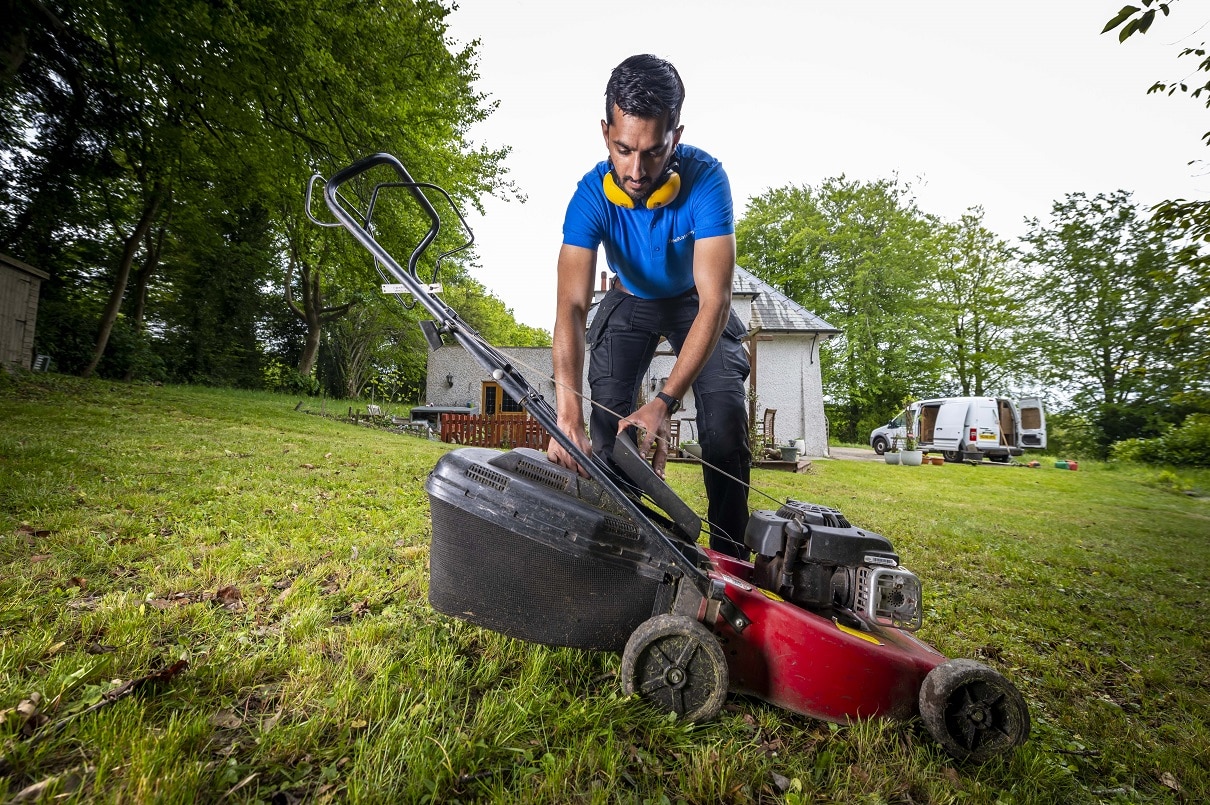Blog>Trade>Starting a Business>How to become a handyperson in the UK
Last updated: 18 December 2024
How to become a handyperson in the UK
Being a handyman (or woman) can be a rewarding job. But how do you get there? In this guide, we look at how to become a handyman in the UK. We'll talk through the training options, skills you need, and how much you could earn.
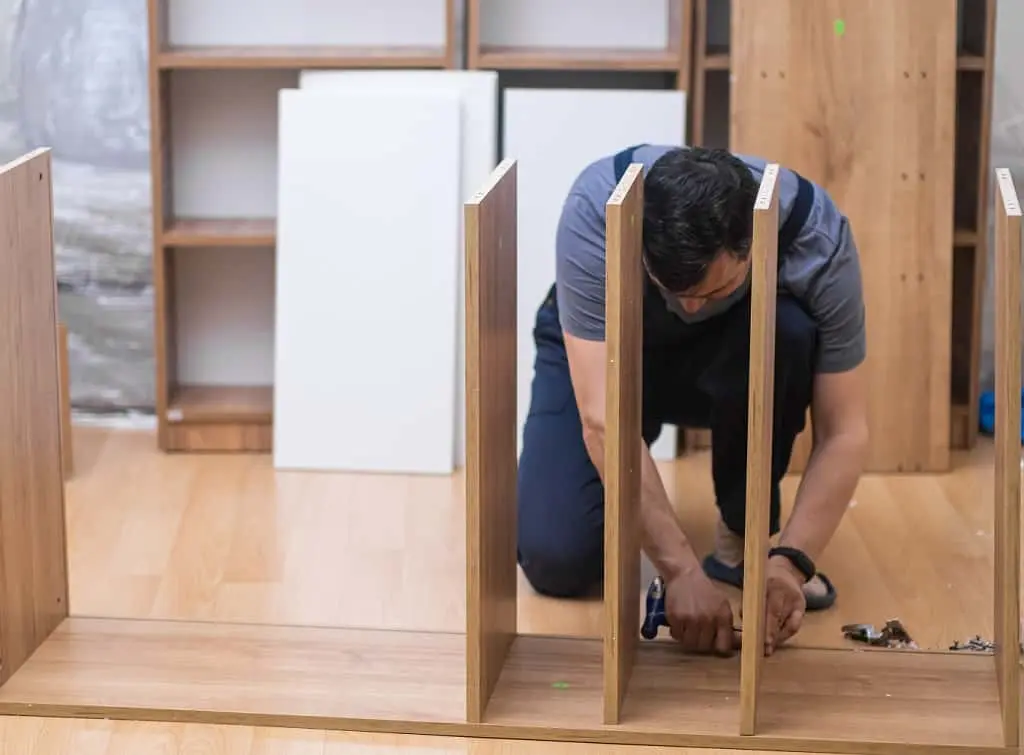
If you’re considering your career options and are wondering how to become a handyman, this guide is for you.
Keep reading to find out how the ways to learn the skills you need to become a handyman. We'll also look at what the job involves and how to become a self-employed handyman.
How to become a handyperson with no experience
There are several routes to becoming a handyman in the UK. And the right one for you will depend on your situation and how you prefer to learn.
If you have no experience, here's a summary of the main handyman training options available…
Which training option is the best?
To help you decide, you might want to research the options available in your area. As well as the costs and earning potential involved.
Whichever option you choose, make sure you get as much practical experience as possible to prepare you for becoming a handyman.

Apprenticeships
An apprenticeship is one of the best options if you like hands-on learning. It’s a great way to learn while on the job.
As an apprentice handyman, you will:
Work under the supervision of an experienced handyman
Typically work for a handyman business that covers general maintenance, carpentry, and similar trade services
Spend the majority of your time working on the job
Do some classroom-based learning through a local college or training provider
This route is great if you want to earn while you learn. But it usually takes longer to become fully qualified – usually 1-3 years.
What are the highest paid trade apprenticeships in the UK?
Looking for the highest paid apprenticeships in the UK? Chances are you're a more hands-on learner. Going to university means hours spent sitting through lectures and reading book after book. So, if this style of learning isn’t for you, why not consider a trade apprenticeship? The best
College courses
For more structured learning, you might want to study a course at your local college.
Many colleges in the UK offer handyman-related training courses, such as:
Carpentry
Plumbing
Electrical work
General maintenance and DIY skills
The type of courses available range from short, part-time evening classes to full-time diplomas and NVQs (National Vocational Qualifications).
If you enjoy learning theory and want solid knowledge before you start working, a college course could be for you.
They’re also useful if you want in-depth training to specialise in a specific area, e.g. plumbing or carpentry.
Become an approved handyman with Checkatrade
Find more work and get your business off to a great start
On-the-job training
This route is similar to an apprenticeship, only it’s less formal and more flexible.
With on-the-job training as a handyman, you will:
Work with an experienced handyman who will teach you skills as you go
Usually start as a handyman’s assistant and gradually take on more responsibilities
Learn various skills through working on different jobs
If you’re a quick learner, this route might be a great option. You’ll just need to make sure you can find an experienced handyman willing to train you.
With on-the-job training, you might not get a qualification, which could limit your career progression in the future.
Get In programme by Checkatrade: getting young people into trade careers
Checkatrade’s Get In programme helps connect you with a world of limitless possibilities in the trades. The future is bright, and we need your help to build it. What is the Get In programme? Get In is a new programme launched by Checkatrade to help encourage more young people into trades careers
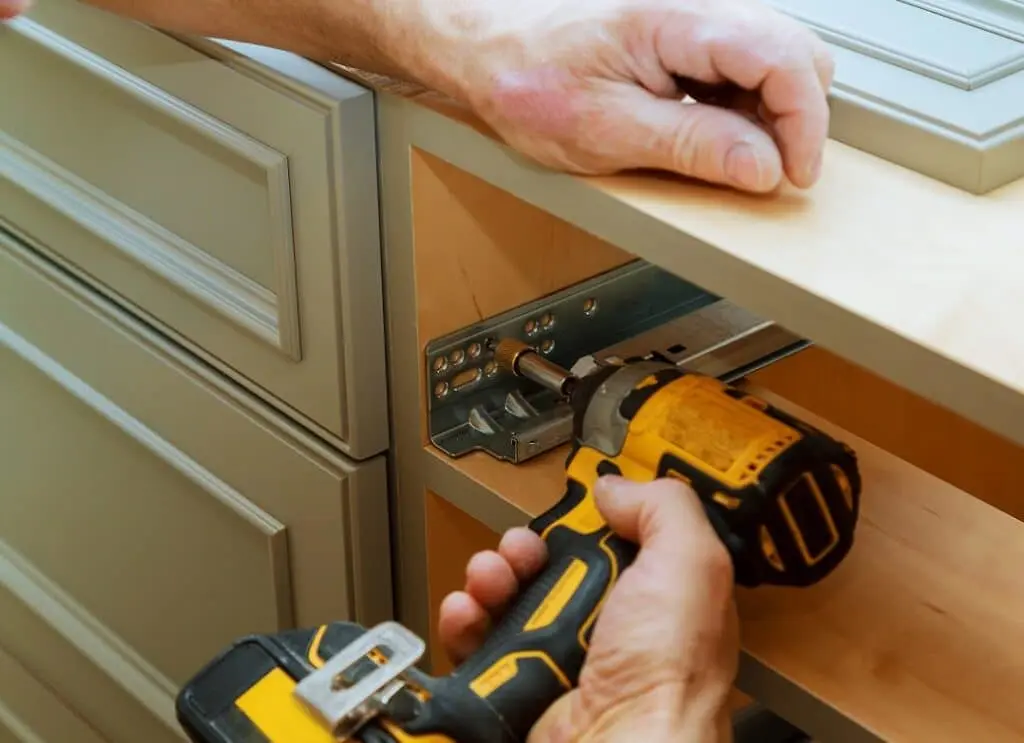
Skills needed to become a handyman
When researching how to become a handyman in the UK, it’s helpful to consider the various skills that you’ll need for the job.
And becoming a successful handyman requires having a wide range of skills – both practical and personal.
Practical skills
These are important for the hands-on side of being a handyman. As you will have a wide range of potential jobs, you could have experience or skills in the following:
General maintenance
Minor plumbing repairs
Building and installing furniture
Using power tools, such as drills, sanders, grinders, and saws
General garden maintenance
Basic carpentry
If you've learnt as an apprentice or on-the-job, you'll likely have picked up a range of skills along the way.
Useful personal skills
Alongside the skills required by the job, it is helpful to have other skills to become a successful handyman (or woman).
Communication skills – Understand your customers’ needs, explain the solution, and build a good relationship with them
Admin and organisation – This is an important part of being an efficient tradesperson
Using modern technology – Such as new tools, new apps, new methods of working
Problem-solving – Fixing things is at the very core of being a handyman
Time management – You might need to manage multiple jobs per day
Ability to take criticism – Being able to take feedback can help improve your work
Health and safety – Be aware of procedures to keep you and your customers safe
Flexibility and adaptability – Every day will be different as a handyman, so you’ll need to be ready to roll with each job and be prepared to handle unexpected situations
By combining practical and personal skills, you’ll be in a strong position to offer first-class handyman services to your customers.
Checkatrade members get more for their money
Save money on a range of business essentials
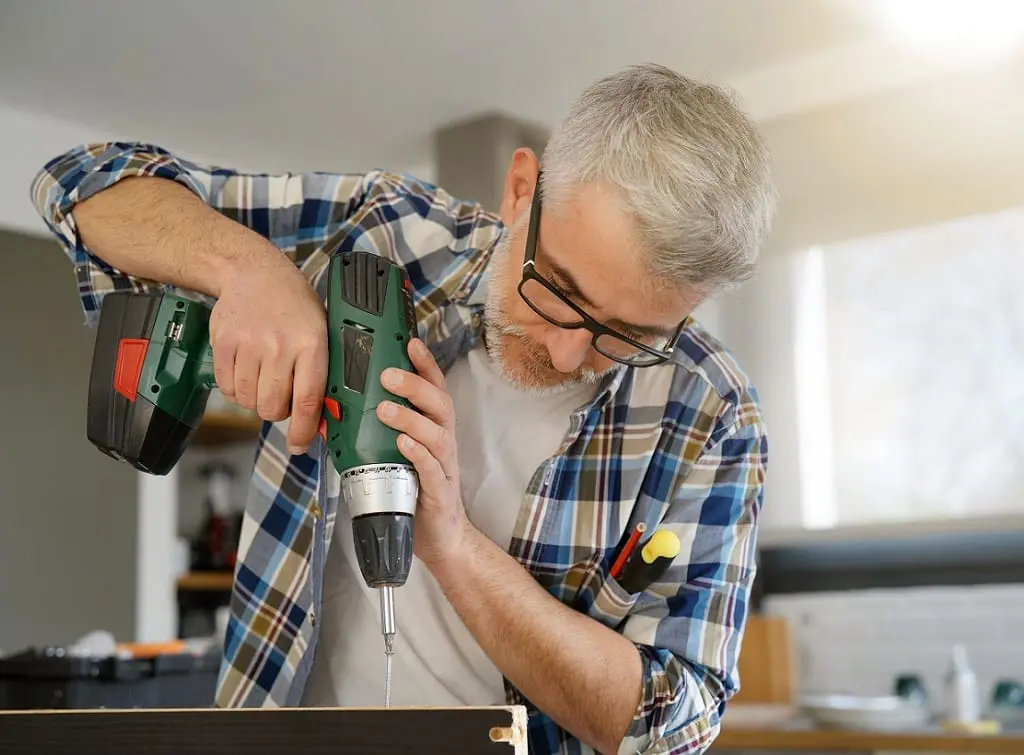
What does a handyman do?
As well as knowing how to become a handyman in the UK, it’s useful to understand what the job involves.
The great thing about being a handyman is the variety of jobs that you’ll be asked to do. And that means there is no fixed job list.
But to give you a rough idea, here are some of the most common jobs that homeowners typically hire handypeople for…
Assembling furniture or equipment
Mounting and installing TVs and audiovisual equipment
Putting up shelves and pictures
Changing light bulbs and ensuring other fixtures and fittings are in good working order
Clearing and making minor repairs to gutters
General painting and decorating
Garden maintenance
Small-scale renovations, such as updating bathroom or kitchen fixtures
You’ll find that every day and every job will be different. And as you gain experience you might want to specialise in certain jobs that you enjoy doing.
Become an approved handyman with Checkatrade
Find more work and get your business off to a great start
How to become a self-employed handyman
Many handymen and handywomen are self-employed as sole traders. And the process of becoming a self-employed handyman is relatively straightforward.
So, here's how to become a self-employed handyman in the UK:
Plan how you’ll manage your finances (and find an accountant, if needed)
Invest in the right tools and equipment
Market your business online and in person
Want to know more? Check out our dedicated guide on setting up a handyman business.
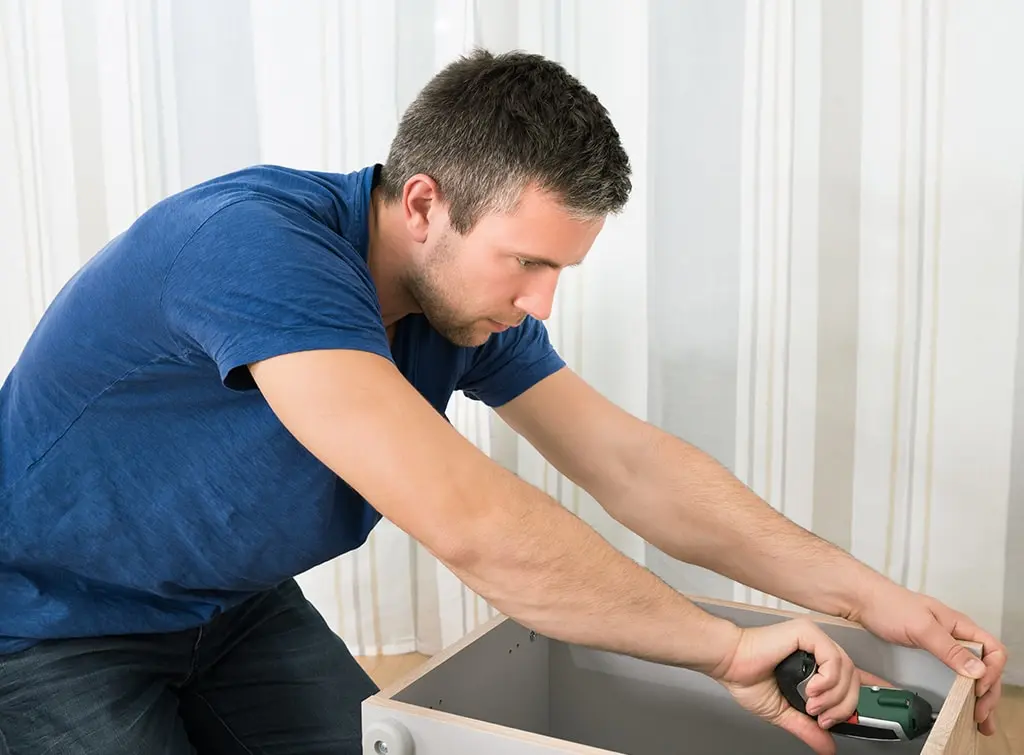
How much does a handyman earn in the UK?
If you’re considering a career as a handyperson, it’s important to understand your earning potential.
Below are some of the average earnings of handymen and handywomen in the UK:
| Level | Per hour | Per day | Per year | Estimated business costs* | Approximate take home pay |
|---|---|---|---|---|---|
| Apprentice | £5.28 | £42.24 | £9,271.68 | £0.00 | £9,138.76 |
| Newly qualified | £7.49 | £59.92 | £13,152.44 | £0.00 | £12,437.34 |
| Employed | £12.00 | £96.00 | £24,960.00 | £0.00 | £20,466.48 |
| Sole trader | £35.00 | £280.00 | £51,626.40 | £6,453.30 | £34,113.63* |
| Business owner (Ltd company) | £50.51 | £404.08 | £74,504.27 | £13,038.25 | £47,852.71* |
| *includes estimated business expenses such as vehicle, fuel, tools and insurance. You should always consult an accountant. | |||||
| Last updated: May 2024 Our costs are ballpark averages - get a local tradesperson to quote now | |||||
Your exact earning will generally depend on your experience, where you live, the quality of your work, and any specialist services you offer
Find out more about how much you can expect to earn in our guide to handyman earnings.
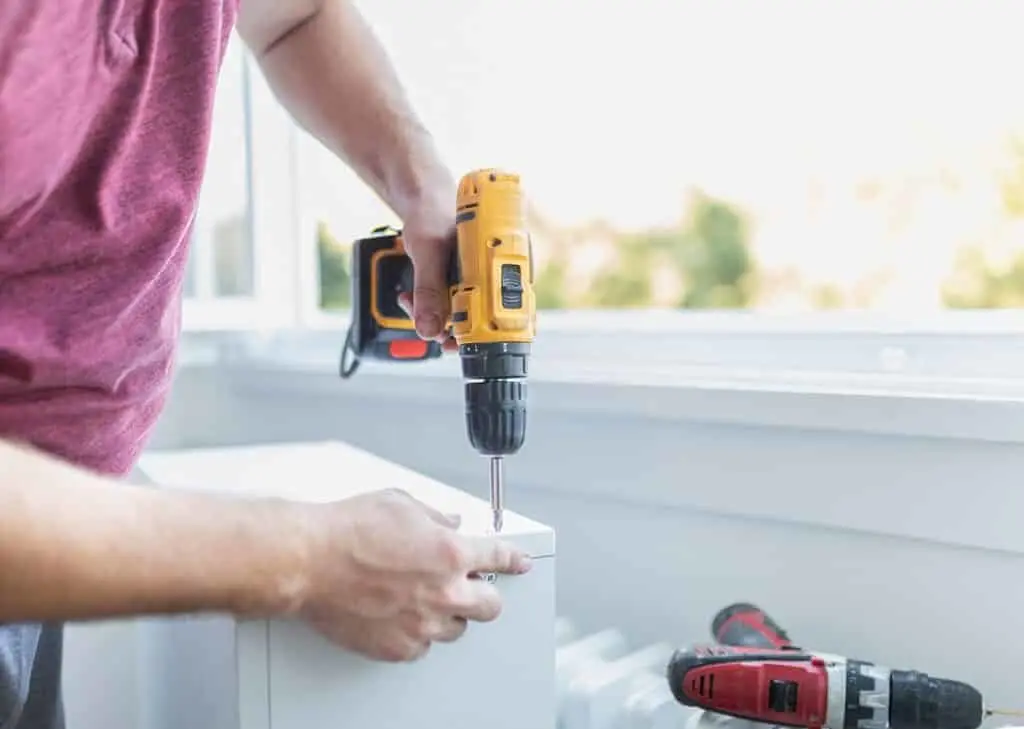
FAQs
How long does it take to become a handyman?
Because of the nature of handyperson work, there’s no fixed timeline for becoming a handyman.
However, if you’re planning to get formal qualifications you can expect it to take around 1-3 years.
That timing will depend on the type and amount of studying you choose.
What do you need to become a handyman?
To become a handyman, you’ll need practical DIY-style skills, a positive and problem-solving attitude, and a willingness to learn.
The best handypeople are open to new challenges, enjoy constantly learning new skills, and communicate well with their customers.
Should I become a handyman?
Choosing a career is a very personal decision and depends on your circumstances and skill set.
If you enjoy using your hands, learning new practical and personal skills, and solving problems, then being a handyman could be a great career for you.
What tools do you need to become a handyman?
As a handyperson, you’ll often need a range of common DIY tools in your toolbox – such as:
Screwdrivers
Tape measure
Hammer
Ladder
Pliers
Sander
Wrenches
Electric drill and drill bit set
Chisel
Flashlight
Spirit level
Vacuum cleaner
You’ll find that each job requires a different set of tools, so you might want to accumulate additional tools and equipment as you go.
Checkatrade members get more for their money
Save money on a range of business essentials




